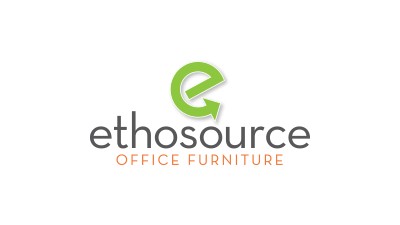How To Recession-Proof An Office Space

The American economy, which has been on a record-long bull run, now seems poised for a decline. But when that crash could come is anybody’s guess. As they look to the volatile years ahead, companies now have to consider not only how to adapt their own business plans, but also how to ensure their workspace can adapt along with them.
Recession-proofing an office space means carefully considering how to furnish and occupy office space in ways that will keep productivity high and costs low, even if headcounts fluctuate. A flexible design, with adaptable rooms and modular furniture, can help companies stay financially competitive, no matter what the coming market throws at them.
“We’re seeing a lot more clients take this flexible approach to design and furnishing, even regardless of the economy,” said Bob Harrison, Philadelphia market manager for EthoSource, a consultative supplier of office furniture. “They are becoming more aware of how much space they lease and how they can adapt to a growing or shrinking workforce.”
As the economy flashes warning signs, companies are coming to grips with the idea that they may not be able to predict their headcount with certainty over the next five years. While hiring could continue, stagnation and layoffs are not out of the question. If that happens, Harrison said, companies may have to cut back on their leases and condense their remaining employees into smaller office spaces.
When planning out a new office, EthoSource consultants provide a layout for the furniture spread across the current floor plan, and scenarios for if the company expands or shrinks its office layout. That means that even with a recession looming, companies are able to achieve their goals for the office design while still cutting furniture costs.
“What we see all the time during downturns is companies that have to close one branch, and they’re left with all this extra furniture that won’t fit or doesn’t go with anything in the other branches,” Harrison said. “They have to sell all that furniture for pennies on the dollar.”
More companies than ever are also working on a project-by-project basis, Harrison said. These businesses need to be able to staff up at a moment’s notice and release staff just as quickly when a project ends. To adapt to these changes, workspaces need to be able to reconfigure themselves day by day.
“Companies are looking more for walls that can be strung up and removed to form temporary training or conference rooms, and furniture that can roll or shift away,” Harrison said.
He pointed to EthoSource’s proprietary line of office benching solutions, known as Basecamp, as a possible solution. One workstation can expand or contract to seat as few as 10 employees or as many as 20. And by replacing the tabletops, the benches can quickly become conference tables or single-employee desks, all without a contractor needed to make any changes.

With the possibility of a downturn on the horizon, companies are also beginning to be more cost-conscious with the furniture that they choose. Harrison and the EthoSource team typically advise their clients to wisely consider where they want to spend more, and where they want to save. A company may want to invest in top-of-the-line chairs or a stunning conference room and can still furnish an entire office without breaking the bank.
“There are value-driven manufacturers today that didn’t exist in years past, who focus on high design and high performance at a lower price point,” Harrison said. “Just because it’s inexpensive doesn’t mean it’s cheap.”
Unlike many office suppliers, EthoSource doesn't have an exclusive relationship with any one manufacturer, meaning that its clients get to choose from the widest possible array of products at various price points. Harrison said this allows the EthoSource team to achieve a client’s vision more closely and at a lower price than a supplier who only offers a limited range of products.
Working with a national supplier like EthoSource can make sure that an entire office portfolio has not only the right amount of furniture, even if headcounts change, but also furniture that looks and feels consistent, and can be successfully integrated into any other company location.
Keeping furniture consistent is not just a smart move in terms of cost, but also points toward the future of work. Two decades ago, Harrison said, a promotion might also mean a move to a different chair, a different desk or a different office, but now that hierarchy is disappearing.
“We’re seeing very subtle extras for higher-level folks now, maybe an extra privacy screen around their workstation,” Harrison said. “If that manager is gone tomorrow, you remove that screen, and it’s the same as everyone else’s.”
This feature was produced in collaboration between Bisnow Branded Content and EthoSource. Bisnow news staff was not involved in the production of this content.

